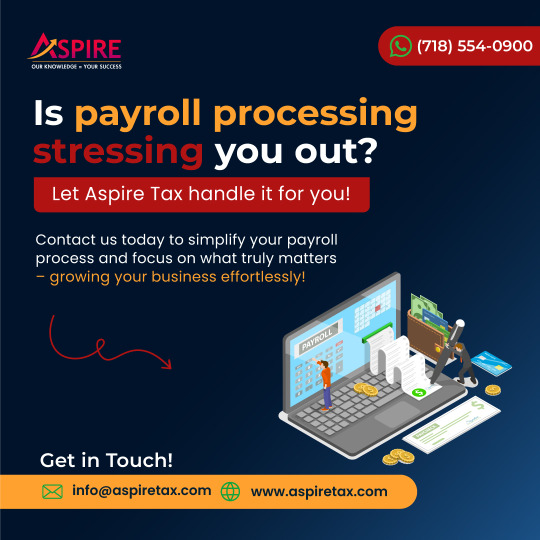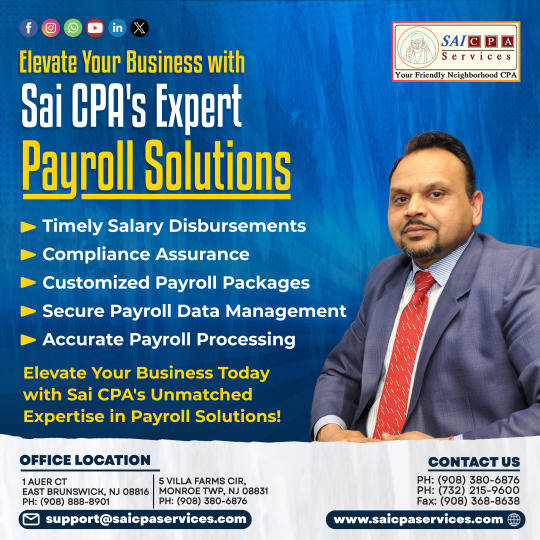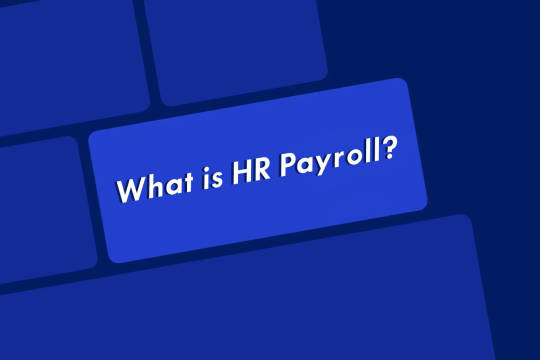#Payroll Processing
Text
Environment in corporate office
The procedures, structure, conventions, and culture of a company or organisation are all included in the corporate environment. It is the overall environment moulded by the relationships, principles, and objectives of its staff and management. Here's a summary of some important components:
A company's common values, beliefs, attitudes, and behaviours are referred to as its culture. It may be affected by things including the company's past, industry standards, and leadership style. Positive company cultures encourage teamwork, creativity, and worker happiness.
Organisational structure: This describes how the company's operations are managed and arranged. It outlines the information flow, decision-making procedures, and reporting lines. Typical organisational forms include network, matrix, hierarchical, and flat structures; each has benefits and drawbacks of its own.
Processes: These include the protocols, workflows, and and systems that govern how work gets done in the organization. Efficient processes help streamline operations, reduce errors, and improve productivity. Continuous process improvement is often emphasized to adapt to changing market dynamics and customer needs.
Leadership: Effective leadership sets the tone for the corporate environment. Leaders inspire and motivate employees, articulate a compelling vision, and make strategic decisions to drive the company forward. Leadership styles can vary, ranging from autocratic to democratic, with each approach impacting employee morale and engagement differently. Communication: Open and transparent communication is crucial for fostering trust, alignment, and collaboration within the organization. This includes both formal channels such as meetings, emails, and reports, as well as informal interactions like team discussions and feedback sessions. Effective communication helps ensure that everyone is on the same page and working towards common goals.
Performance Management: Clear performance expectations and feedback mechanisms are key components of the corporate environment. Performance management processes, including goal setting, performance evaluations, and rewards, help align individual and organizational objectives, identify areas for improvement, and recognize high performers. Overall, a conducive corporate environment is one where employees feel valued, empowered, and motivated to contribute their best efforts towards achieving the company's goals. Continuous efforts to nurture a positive culture, effective leadership, and supportive practices are essential for long-term success.
The Labour Welfare Fund LWF is essential to promoting the welfare and general well-being of Indian workers in a variety businesses.

#labor rights#labour lawyers#pf#epf#pf online#payroll processing#labour laws#office#corporate services
4 notes
·
View notes
Text
Payroll Processing Challenges in the Manufacturing Industry – Exela HR Solutions

Few industries of the economy play as paramount a role in creating new valuable job opportunities as the manufacturing sector, and fewer even can successfully embody the rapidly evolving workplace following the pandemic. Yet, the manufacturing industry was one of the few sectors that performed an expert pivot and managed to, at times, even profitably, hold the fort.
While this rapid growth is, as many will bear witness, a good problem to have, a manufacturing business must fill several roles to ensure smooth functioning, for example, machine operators, management, packers, shippers, and many others with varying pay scales. The sheer volume of employee and payroll management that manufacturing industries need is a definite HR nightmare. One must also consider aspects of the administration process, such as different pay cycles, different rate calculations, and the breakdown of various labor when handling payroll for businesses in the manufacturing industry. To summarize, dealing with the intricacies of payroll for the manufacturing industry should be efficient and adaptable. To establish a working payroll system in the manufacturing industry, one must first understand the industry’s main challenges or payroll issues.
Payroll processing challenges in the manufacturing industry
· Compliance
· Taxation
· Accuracy
· Privacy and security
· Technology integration
· Misclassification
Source link to read more details about payroll processing challenges in the manufacturing industry – https://ehrs.exelatech.com/blog/payroll-processing-challenges-manufacturing-industry
Recruitment process outsourcing (RPO)
The skills gap, privacy and security concerns, or other payroll challenges affecting the manufacturing industry make it imperative to attract talent, fill jobs, and retain them. Manufacturing RPO (Recruitment Process Outsourcing) provides recruitment expertise and scalability from requisition to onboarding, completely aligned with your organizational goals and culture. Recruitment Process Outsourcing arms the manufacturing industry with the tools and technologies they need to ensure robust HR processes. If your organization struggles to keep up with payroll processing and accelerating recruitment efforts, consider a recruitment partner that manages your recruitment processes end-to-end, from hiring to payroll. Here’s what you get when you outsource HR services:
Instant Access to a larger talent pool
Lower labor costs
Reduced hiring TATs
100% accuracy in processes
Zero security or privacy concerns.
Why Exela HRO?
The future of manufacturing faces numerous challenges due to accelerated technological advancements, consumer expectations, and emerging markets. As the obstacles intensify, the need for the right talent also upsurges. Pretty soon, it will be imperative to have a talent partner who can promptly mobilize in response to your organizational requirements. At Exela, our human resource experts provide an agile solution tailored to your company’s needs.
Our experts help clients align their priorities, performance, business values, and human resources with in-depth industrial expertise, robust data analysis, and powerful insights. Exela HRO can help you build technology-driven HR strategies to fuel business growth. If you struggle to get through your payroll or streamline other HR processes, get help from Exela HR solutions offering world-class global payroll processing, recruitment, HRBP services, and compensation and benefits. Talk to our experts today to know more!
Get in touch with our experts today to learn more - https://ehrs.exelatech.com/contact-us
#Payroll#Payroll Outsourcing#Payroll Processing#HR Services#HR Solutions#Global Payroll Processing#HR Outsourcing#EHRS#HR#Exela HR Solutions
2 notes
·
View notes
Text
#best hr and payroll software for small business#hrms software#hr and payroll software for small business#hr software#payroll processing#software for small business#payroll management software for small business#hr management software for small business#online hr management software#cloud-based hr management software#hr management software#best hr management software#greytHR
0 notes
Text

Professional bookkeeping services for seamless payroll processing tailored to streamline your payroll management effortlessly.
0 notes
Text
Strategic Financial Management: Payroll Services
Managing payroll efficiently is crucial for businesses of all sizes. SAI CPA Services offers comprehensive payroll services to streamline your payroll process and ensure compliance.
Our experienced team handles all aspects of payroll, from calculating wages and deductions to processing payroll taxes and issuing paychecks. With our expertise, you can avoid costly errors and penalties while saving time and resources.
By outsourcing your payroll to SAI CPA Services, you can focus on growing your business while we handle the administrative burden. Contact us today to learn more about our payroll services and take the first step towards hassle-free payroll management.
Stay tuned for more insights into our comprehensive range of accounting and financial services, designed to support your business success.

Connect Us: https://www.saicpaservices.com/contact-us/ https://www.facebook.com/AjayKCPA https://www.instagram.com/sai_cpa_services/ https://twitter.com/SaiCPA https://www.linkedin.com/in/saicpaservices/ https://whatsapp.com/channel/0029Va9qWRI60eBg1dRfEa1I
908-380-6876
1 Auer Ct, 2nd Floor
East Brunswick, NJ 08816
#saicpaservices#small business#payroll services#payroll management#payroll processing#business services#payroll software#financial management#accounting services
1 note
·
View note
Text
How HR Payroll Services Can Streamline Your Business Operations

Running a business involves managing a myriad of processes and functions, from ensuring high productivity levels to keeping employees motivated. At the heart of these tasks lies the crucial aspect of HR payroll services. Companies often face challenges when managing payroll on their own due to the complex nature of payroll regulations, taxation, and compliance issues. That’s where Ignite HCM comes in.
As a leading provider of HR Payroll Services, Ignite HCM helps businesses of all sizes streamline their operations by offering expert payroll management and comprehensive HR services. In this blog, we will explore how HR payroll services can significantly improve your business operations and why Ignite HCM is the go-to solution for businesses looking for top-notch HR services.
The Importance of HR Payroll Services
Payroll management is a critical aspect of running a business. It includes handling employee salaries, bonuses, deductions, taxes, and other compensatory benefits. Proper management of payroll is crucial for maintaining employee trust and morale while ensuring compliance with legal requirements.
HR payroll services can help businesses manage these tasks more efficiently and effectively. Outsourcing payroll and HR functions can relieve companies of administrative burdens, allowing them to focus on core business objectives. By leveraging the expertise of Ignite HCM, businesses can benefit from a range of advantages.
Key Benefits of HR Payroll Services from Ignite HCM
Cost Savings
Outsourcing payroll and HR services to Ignite HCM can lead to significant cost savings for businesses. By eliminating the need to maintain an in-house payroll department, companies can save on staffing and overhead costs. Ignite HCM offers flexible pricing models that cater to the specific needs and size of your business.
Improved Accuracy
Payroll errors can result in costly fines and penalties and negatively impact employee satisfaction. With Ignite HCM’s HR payroll services, businesses can rest assured that their payroll is managed with the highest level of accuracy. Ignite HCM’s experts use the latest software and technologies to ensure precise calculations and compliance with all regulations.
Time Savings
HR and payroll administration can consume a significant amount of time for business owners and HR teams. Ignite HCM takes on these responsibilities, freeing up valuable time that can be spent on strategic initiatives and business growth. With Ignite HCM managing your payroll, you can focus on running and growing your business.
Compliance with Laws and Regulations
Payroll laws and regulations are constantly changing, making it challenging for businesses to stay up-to-date. Ignite HCM’s HR payroll services ensure compliance with all federal, state, and local laws. Their experts keep track of all changes in payroll regulations and handle filings and reporting on behalf of your business.
Enhanced Data Security
Handling payroll data involves managing sensitive information such as employee social security numbers and bank account details. Ignite HCM employs state-of-the-art security measures to protect your data from breaches and unauthorised access. By outsourcing your payroll to Ignite HCM, you can safeguard your business and employees’ information.
Access to HR Expertise
Ignite HCM’s HR payroll services provide businesses with access to experienced HR professionals who can offer guidance on various HR matters. From employee benefits to labor laws, Ignite HCM’s team can help you navigate HR complexities and make informed decisions that benefit your business and employees.
How Ignite HCM HR Payroll Services Work
When you choose Ignite HCM for your HR payroll services, you gain a partner dedicated to streamlining your business operations. Here’s how the process works:
Initial Consultation
Ignite HCM begins by understanding your business needs and goals. An initial consultation allows the team to tailor their HR payroll services to your specific requirements.
Data Collection and Analysis
Ignite HCM collects the necessary data to set up your payroll system. They analyze your existing payroll structure and identify areas for improvement.
Implementation and Management
Once the system is set up, Ignite HCM takes over the management of your payroll process. This includes processing employee payments, calculating taxes, handling deductions, and more.
Ongoing Support
Ignite HCM provides ongoing support, including answering your questions, handling any payroll-related issues, and making necessary adjustments to your payroll system.
Why Choose Ignite HCM for HR Payroll Services?
Ignite HCM is a trusted provider of HR payroll services with years of experience in helping businesses streamline their operations. Here’s why you should consider Ignite HCM for your HR and payroll needs:
Expertise
Ignite HCM’s team of HR professionals brings in-depth knowledge and experience in payroll management and compliance.
Customized Solutions
Ignite HCM tailors its services to meet the unique needs of each client, providing a personalized experience.
Reliability
Ignite HCM offers reliable, efficient, and secure payroll services, allowing you to focus on growing your business.
Client-Centric Approach
Ignite HCM values its clients and works closely with them to ensure their satisfaction and success.
Conclusion
Incorporating Ignite HCM’s HR payroll services into your business operations can bring numerous benefits, from cost and time savings to improved accuracy and compliance. By outsourcing your payroll management to Ignite HCM, you can streamline your business processes, enhance data security, and gain access to expert HR advice.
If you’re looking for a reliable partner to handle your HR and payroll functions, look no further than Ignite HCM. Reach out to Ignite HCM today and experience the benefits of efficient, accurate, and secure HR payroll services.
for more info : https://www.ignitehcm.com/solutions/ignite-productivity
Contact : +1 301-674-8033
#HR Payroll Solutions#Payroll Management#Employee Compensation#Payroll Processing#Payroll Software#HR Services#Payroll Compliance#Payroll Outsourcing#Payroll Automation#Payroll Administration
0 notes
Text
#Payroll Processing Solutions#Payroll management#Payroll services#Payroll software#Payroll automation#Payroll compliance#Payroll outsourcing#Payroll processing
0 notes
Text
Understanding Payroll Processing

Payroll processing remains one of the most critical functions of HR. It is also a significant responsibility for an organization to ensure that employees receive their salary accurately and on time. All organizations must have a good understanding of what payroll entails and how to manage payroll processing effectively. In this article, we look at the fundamentals of payroll processing and the steps involved.
What is Payroll?
Payroll is formally defined in two ways:
A list of a company’s employees and how much they are to be paid
The total amount of money paid in each period by a company to their employees for service provided
How is employee salary calculated?
The amount of money paid to an employee is known as “net salary”, which is the amount due to the employee after removing required deductions from the “gross salary”.
Gross salary includes base salary plus any allowances plus any one-time benefits or payments.
Deductions can include regular sums such as contributions to a savings scheme, or one-off payments such as a recovery of an overpayment, or in some cases a statutory deduction such as a tax or regular pension contribution.
The net pay, which is the amount transferred to the employee, is the gross income minus the gross deductions.
What steps are needed to process payroll?
The function of establishing a payroll involves six critical steps as shown below, and we can combine these into three phases – what happens before, during and after processing.
Before
1. Define payroll policy: The organization must establish documented and approved payroll-related policies as a base. These policies must comply with local labor laws and include elements such as time and attendance, leave, and benefits.
2. Define components: Core components that will be used to build the payroll must be defined, including base salaries and salary scales, flexible salary rates, and overtime rates.
3. Collect and check inputs: Those responsible for payroll processing need to gather all the elements required as input to the salary at specified times in preparation for processing. There will usually be data needed from multiple sources such as IT systems, other departments and sometimes other organizations. This data needs to be checked and validated before being used in calculations to ensure the accuracy of salaries being paid to employees.
During
1. Calculate payments: Some smaller organizations are still dependent on manual processing of payroll, usually with the support of spreadsheets. In contrast, others have invested in specialized payroll software or may even have an outsourced payroll solution. Whatever the case, the collated data needed for payroll calculation needs to be fed into whatever system is used for payroll processing. The payroll system will apply deductions to gross salaries, calculate each employee’s net salary, and provide total payroll data.
After
1. Distribute pay slips: After payroll calculations are complete and checked, salaries are distributed with documentation that summarizes gross salary, deductions and net salary, commonly known as a pay slip. Pay slips may be paper-based or provided online based on the organization's policies and are typically distributed one month in arrears.
Salaries may be paid in cash, by cheque or, more often these days, by bank transfer directly to the employee’s bank account. Funds are released from the organization's bank account, and so the person responsible for payroll must notify the bank each month of the payroll sum to be provided.
2. Report and Pay Dues: In addition to the responsibility to pay employees, organizations must also pay any dues required by government entities or other organizations. Money due may include taxes or contributions to government pension schemes, for example. Typically, with any statutory requirement, there is a level of reporting required to relevant bodies to validate the payments. In addition, payroll must be accounted for as an operating cost for the organization and forms part of audited accounts.
What steps are needed to process payroll?
There are three main methods of managing payroll processing:
Spreadsheets
Specialized payroll software
Outsourced payroll processing
Small companies with few employees and standard salary profiles may use spreadsheets such as Excel for their payroll processing. Typically, spreadsheets are set up with defined macros to simplify the processing and ensure accurate and consistent application of formulas and methods. The use of spreadsheets is the lowest cost option for managing payroll but has a higher risk of error as it is dependent on manual data entry. Excel-based processing is also more difficult when rules or policies change, and the spreadsheet macros need to be re-designed to meet new requirements.
Specialized payroll software is another common method for handling payroll processing. Payroll software ranges from those that provide simple handling of all core payroll tasks to more sophisticated systems that offer a higher level of data integration by handling payroll-related information such as time and attendance or benefits management. Often these systems can be integrated with other core HR systems in seamless workflows.
Outsourced payroll processing involves submitting employee data to a contracted specialist external service provider that processes the payroll and manages compliance on behalf of the organization. Outsourcing payroll can be an effective way to manage this critical aspect of the business. It takes away the need for an organization to maintain specialized skills sets, ensures implementation of the latest legislation and reduces the risk of processing errors. In this model, it is critical that the organization selects a reputable and professional partner as their service provider.
Payroll can be a complicated and time-consuming activity and is subject to human error in processing. It requires specialized skills and up-to-date knowledge of the latest relevant legislation.
Our HRBluSky platform provides you with payroll processing seamlessly integrated across other modules, and with external service providers for salary processing using the WPS electronic salary transfer system.
HRBluSky has inbuilt UAE labor law, employee recruitment, visa, insurance and end of service benefits costs. These are all included in the system, enabling you to track hidden employee costs and support more accurate forecasting for your HR budget.
0 notes
Text
Hire The Best And Affordable Payroll Processing in Lagos
You can easily hire the best Payroll Processing in Lagos for your business at reasonable pricing. We have extensive experience in financial and business areas.

0 notes
Text
#payroll#payroll deductions#impact#finance#payroll ireland#payroll services#payroll processing#outsourcing payroll
0 notes
Text

What is HR Payroll?
0 notes
Text
Nitin Mittal & Co.'s Small Business Payroll Processing Mastery
Nitin Mittal & Co. has recognized the importance of small business payroll processing and become a leading expert in delivering specialized solutions to satisfy these firms' unique demands. For More Information Visit:
0 notes
Text
Ways to efficiently structure your company's payroll function

Organizational structure is an essential component of every company, whether consciously acknowledged or not. It serves as the framework for assigning roles, responsibilities, job functions, accountability, and decision-making authority within the organization. Similar to the overall organizational structure, the structure of the payroll function is equally important. It should be designed to align with the company's goals and objectives to ensure efficient payroll management and overall organizational success.
Managing payroll involves various tasks, such as calculating employee hours, processing payments, tax withholding, and maintaining accurate financial records for your business. The intricacies of payroll management, from handling sensitive employee data to tax calculations and fund transfers, can be complex and carry legal responsibilities. It is crucial to ensure compliance with legal requirements when managing payroll. Additionally, structuring the payroll function is vital to any organization's payroll strategy. So, let's discover ways to structure your company's payroll for better efficiency and employee satisfaction. Also, find the 7 FAQs when it comes to the ideal payroll solution for your organization.
Why do you need to structure your payroll function?
Structuring your company's payroll function is crucial for many reasons. By investing in well-designed payroll processing, organizations can effectively manage one of the most critical aspects of their operations while supporting overall business success.
Here are a few reasons why you must consider structuring your organizational payroll.
· Accuracy and timeliness
A well-structured payroll function ensures accurate and timely payment to employees. Organizations can minimize errors in calculations, deductions, and tax withholdings by establishing transparent processes, roles, and responsibilities and leveraging technology. This, in turn, helps build trust and maintain positive employee relations.
· Compliance with laws and regulations
Payroll structuring ensures organizations comply with various labor laws, tax regulations, and reporting requirements. By staying up-to-date with changing regulations, implementing internal controls, and conducting periodic audits, companies can avoid penalties, legal issues, and reputational damage associated with non-compliance.
· Efficiency and productivity
Structuring payroll optimizes efficiency and productivity within the organization. By automating manual processes, integrating systems, and streamlining workflows, payroll staff can focus on value-added tasks instead of repetitive administrative work. This frees up time for strategic initiatives and enhances overall productivity.
· Cost savings
Effective payroll processing can lead to cost savings in multiple ways. Automation reduces manual labor and associated costs, while accurate calculations and compliance prevent costly errors and penalties. Moreover, streamlined processes reduce administrative burdens, allowing staff to work on other critical areas.
· Employee satisfaction and retention
Timely and accurate payment is crucial to employee satisfaction. A well-structured payroll function ensures employees receive their wages and benefits without delays or errors, fostering a positive work environment. This contributes to higher employee morale, engagement, and retention.
· Data security and confidentiality
Payroll structuring emphasizes secure data management practices, protecting sensitive employee information. Organizations can mitigate the risk of data breaches and maintain confidentiality by implementing appropriate safeguards, encryption measures, and access controls.
· Reporting and decision-making
Structured payroll systems provide accurate and comprehensive reporting capabilities. This enables management to access key payroll data, such as labor costs, tax liabilities, and benefits expenses. Such data support informed decision-making, financial planning, and strategic resource allocation.
How to structure your payroll?
A well-functioning payroll department is crucial for maintaining high employee satisfaction and improving overall organizational productivity and efficiency. Employees have a rightful expectation that their organizations will consistently and accurately compensate them according to their employment contracts.
However, a slow, overly complex, or error-prone payroll process can strain employee and employer relationships and waste valuable time for HR teams. To avoid such challenges and achieve efficiency, compliance, and timely payment, it is essential to structure the payroll function effectively.
Determining the structure of the payroll function is a key component of any organization's payroll strategy, regardless of its global or domestic operations. The structure primarily depends on two factors: the concentration of payroll activities and the desired level of outsourcing versus in-house management of these activities. In the following sections, we will guide you through the considerations for each of these factors.
· Degree of concentration in payroll activities
As a company expands its operations across different states, provinces, or national borders, the workforce grows in size and diversity. Consequently, the payroll function becomes more intricate due to the diverse regulations and laws in each specific region.
Initially, companies often opt to establish separate payroll departments for each business unit or location, which usually leads to inconsistent processes, duplication of tasks, and inefficiencies. However, best practices suggest adopting a centralized model for administrative and transactional finance activities, including payroll.
According to a survey, 77% of businesses have implemented centralized payroll systems.
In the case of large global organizations, centralization is typically implemented regionally, as relying on a single centralized team may not suffice for the entire global workforce.
In an optimal scenario where organizations have well-developed payroll departments, they aim to create a Payroll Center of Excellence (COE) responsible for overseeing governance, policies, processes, continuous improvement, standards, technology, automation strategy guidance, and establishing performance metrics for the entire organization's payroll operations. Subsequently, these policies and guidelines can be customized as per the specific requirements of individual regions or locations.
Moreover, assigning a global process owner who can oversee the entire payroll processing is beneficial, ensuring dedicated governance and focused attention to the process.
For organizations with a wide geographical presence, exploring the option of establishing regional payroll shared services centers may be beneficial. These centers promote the growth of process knowledge, standardization, improved reporting and analysis capabilities, enhanced compliance oversight, and eliminate redundant tasks.
· Level of activities managed in-house vs. outsourced
Typically, businesses opt to outsource non-core tasks or those that external parties can perform more effectively. This decision is driven by factors such as cost reduction, improved efficiency, adherence to regulations, and access to specialized knowledge.
Payroll processing can be intricate and challenging, especially considering the dynamic nature of rules and regulations across industries and countries. It is not surprising that many businesses opt to outsource their payroll operations, either partially or entirely, to external providers. This approach offers several advantages, making it a popular choice for organizations. Here are some of the key reasons why businesses choose payroll outsourcing:
Saves time
Minimizes payroll errors
Improves security
Maintains compliance
Integrates data
Facilitates employee self-service
Typically, experts suggest considering a comprehensive payroll outsourcing solution that seamlessly integrates various components of workforce management with the payroll system. This inclusive platform covers the entire spectrum, encompassing recruitment, benefits, performance evaluation, and more. By consolidating these functions into a unified system, businesses gain advantages such as generating comprehensive reports, improving efficiency by replacing multiple platforms with a single one, fostering effective communication between employees and employers, and other benefits.
How to Manage an Effective Payroll Department
Managing an effective payroll department is crucial for any organization's financial stability and employee satisfaction. A well-run payroll department ensures accurate and timely payment processing, compliance with tax regulations, and seamless communication with employees. This section will explore essential strategies and best practices to manage a payroll department efficiently. From establishing streamlined processes to leveraging technology and prioritizing compliance, these insights will empower businesses to optimize payroll operations, reduce errors, and enhance overall organizational effectiveness.
· Have a standardized and streamlined payroll system
· Ensure payroll integration with other business functions
· Update payroll software
· Stay up-to-date on the latest employment laws
· Establish a payroll calendar
· Have a backup
· Outsource your payroll process
· Perform regular audits
· Hire qualified staff
Choosing the Right Payroll System - 7 FAQs
1. What features should I look for in a payroll system?
When evaluating payroll solutions, key features to consider typically include automated payroll calculations, tax management, direct deposit capabilities, benefits administration, reporting and analytics, compliance support, and integration with other HR or accounting systems.
2. Should I opt for an in-house or cloud-based payroll system?
Both in-house and cloud-based payroll systems have their advantages. In-house systems provide more control and customization, while cloud-based systems offer accessibility, scalability, and automatic updates. Consider your organization's size, IT infrastructure, budget, and data security requirements when making this decision.
3. How do I ensure data security and compliance?
Data security and compliance are paramount in payroll management. Look for payroll solutions that employ strong encryption, data backups, access controls, and compliance features for tax regulations and labor laws. Additionally, consider the system's track record for security breaches and their measures to address them.
4. Can the payroll system handle my organization's specific needs?
Evaluate whether the payroll system can accommodate your organization's unique requirements, such as multi-state or international payroll, complex compensation structures, timekeeping integration, employee self-service portals, or specific reporting needs. Ensure the system is flexible enough to adapt to your evolving payroll demands.
5. What level of customer support is provided?
Consider the availability and quality of customer support the payroll solution provider offers. Look for prompt assistance, training resources, user forums, and a responsive support team that efficiently addresses your inquiries or troubleshoots issues.
6. How much does a payroll system cost?
Payroll system costs can vary depending on factors like the size of your organization, the number of employees, and the complexity of your payroll processes. Consider both upfront costs, such as software licenses or implementation fees, as well as ongoing fees for maintenance, updates, and support. Evaluate the system's return on investment (ROI) regarding time savings, reduced errors, and improved efficiency.
7. Can the payroll system scale with my organization's growth?
Ensure that the chosen payroll solution can accommodate your organization's growth and future needs. Assess its scalability, ability to handle an increasing employee count, and compatibility with expanding business operations. Consider long-term partnerships and whether the system can adapt as your organization evolves.
Conclusion
Outsourcing payroll management to third-party service providers has emerged as a prominent trend in the business world. This trend is observed among companies of various sizes, as they recognize the significant cost savings achieved through outsourcing. Particularly for small business owners lacking the necessary resources to develop or update their payroll systems, opting for a professional, comprehensive payroll management company offers a strategic and economically viable solution.
47% of companies have chosen payroll outsourcing for their operations.
Exela HR Solutions provides highly effective, end-to-end payroll solutions that are customized to meet the unique requirements of businesses. Our comprehensive platform assists organizations in automating payroll processing and offers self-service tools for seamless payroll management by employees. Reach out to our experts at Exela HR Solutions today and discover our range of payroll services!
DISCLAIMER: The information on this site is for general information purposes only and is not intended to serve as legal advice. Laws governing the subject matter may change quickly, and Exela cannot guarantee that all the information on this site is current or correct. Should you have specific legal questions about any of the information on this site, you should consult with a licensed attorney in your area.
Source & to read more: https://ow.ly/EQRW50Pauzw
Contact us for more details: https://ow.ly/FutP50OUQVK
#Payroll Function#Payroll Processing#Payroll Outsourcing#Payroll Solutions#Payroll Solution#Global Payroll Processing#HR Outsourcing#Payroll#Payroll Management#Payroll Outsourcing Service#HR Services#Exela HR Solutions
1 note
·
View note
Text
#hrsolutions#exelahrsolutions#hr#hrservices#hroutsourcing#humanresources#payroll#globalpayrollprocessing#Payroll Processing#Payroll Outsourcing#Global pryroll#payroll management
0 notes
Text
Accounting firm
Website: https://alnaccounting.com/
Address: 9110 N Loop 1604 W, San Antonio, TX 78249
Phone: +1 210-294-9730
Welcome to A.L.N Accounting Services, PLLC! We are a full-service accounting firm that provides bookkeeping, tax preparation, and payroll processing services to businesses in service-based industries such as construction, real estate and security.
We understand the complexities of growing and managing a business, which is why we take pride in being able to provide tailored accounting solutions to help your business succeed.
Our team of experienced tax professionals and accountants are passionate about helping businesses grow and manage their finances. Whether you’re looking to outsource your bookkeeping, prepare tax returns or need help with payroll processing, our team is here to help.
At A.L.N Accounting Services, PLLC we specialize in working with service-based businesses with revenues of over $2,000,000. Our team is well-versed in the laws and regulations that govern these industries and we make sure to stay up-to-date with changes in legislation.
Our services are designed to give you peace of mind, knowing that your finances are in order and compliant with the relevant laws. We keep everything organized, so you can focus on running your business without having to worry about the details.
Facebook: https://www.facebook.com/alnaccountingservices
Instagram : https://www.instagram.com/alnaccounting/
#tax preparation#Bookkeeping Service#Accounting Services#Accounting firm#payroll services#tax returns#Tax Planning#Payroll Processing#Accounting Consulting#Bookkeeping near me
0 notes
Text
Simplify Payroll and Save Time with ADP Payroll Processing Services
Managing payroll can be a daunting task for businesses of all sizes. From calculating wages to ensuring compliance with tax regulations, payroll processing demands time and precision. However, with the advent of advanced payroll processing services like ADP (Automatic Data Processing), businesses can streamline their payroll operations, saving time and resources. In this article, we will delve into the benefits of utilising ADP Payroll Processing Services and how they can help simplify payroll tasks for businesses.
Understanding ADP Payroll Processing Services
What is ADP?
ADP, or Automatic Data Processing, is a global leader in human capital management solutions, offering a range of services including payroll processing, HR management, benefits administration, and more. With decades of experience and advanced technology, ADP provides comprehensive solutions to streamline payroll operations for businesses.
ADP Payroll Processing Services
ADP's payroll processing services encompass various aspects of payroll management, including calculating wages, deductions, taxes, and generating pay-checks or direct deposits for employees. ADP's robust software automates many payroll tasks, reducing errors and ensuring compliance with tax laws and regulations.
Benefits of ADP Payroll Processing Services
Time Savings
One of the primary benefits of using ADP Payroll Processing Services is the significant time savings it offers. By automating repetitive payroll tasks, businesses can streamline their processes, freeing up valuable time for HR personnel to focus on other strategic initiatives.
Accuracy and Compliance
ADP's advanced software is equipped with built-in compliance features, ensuring that payroll calculations are accurate and in accordance with tax laws and regulations. This helps businesses avoid costly errors and penalties associated with payroll non-compliance.
Scalability
Whether a business has ten employees or thousands, ADP Payroll Processing Services are scalable to meet the needs of businesses of all sizes. As businesses grow and expand, ADP's solutions can adapt to accommodate increased payroll demands seamlessly.
Ignite HCM Integration with ADP Payroll Processing Services
Seamless Integration
Ignite HCM is a leading human capital management software provider, offering solutions for HR, payroll, talent management, and more. By integrating Ignite HCM with ADP Payroll Processing Services, businesses can achieve seamless payroll management from one unified platform.
Enhanced Efficiency
Integration with Ignite HCM allows businesses to streamline their HR and payroll processes further. Employee data entered into Ignite HCM automatically syncs with ADP's payroll system, eliminating the need for manual data entry and reducing the risk of errors.
Comprehensive Reporting
Combining Ignite HCM's robust reporting capabilities with ADP's payroll data provides businesses with comprehensive insights into their workforce and payroll expenses. Customisable reports enable businesses to analyse trends, track expenses, and make informed decisions to optimize their payroll processes.
Conclusion
ADP Payroll Processing Services offer businesses a comprehensive solution to simplify payroll management and save time. With advanced technology, accuracy, and compliance features, ADP streamlines payroll operations while reducing errors and ensuring compliance with tax laws and regulations. Additionally, integrating Ignite HCM with ADP's payroll system enhances efficiency and provides businesses with comprehensive insights into their workforce. By leveraging these solutions, businesses can focus on strategic initiatives and drive growth while leaving payroll management in capable hands.
for more info : https://www.ignitehcm.com/solutions/implementation
Contact : +1 301-674-8033
#ADP Payroll#Payroll processing#Payroll services#ADP services#Payroll management#Payroll solutions#Human resources
0 notes